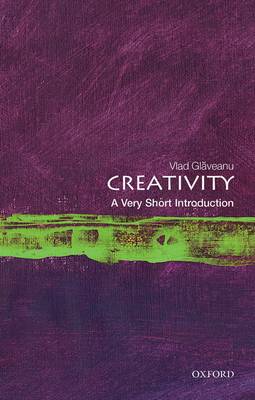
- Retrait gratuit dans votre magasin Club
- 7.000.000 titres dans notre catalogue
- Payer en toute sécurité
- Toujours un magasin près de chez vous
- Retrait gratuit dans votre magasin Club
- 7.000.000 titres dans notre catalogue
- Payer en toute sécurité
- Toujours un magasin près de chez vous
Description
Very Short Introductions: Brilliant, Sharp, Inspiring For thousands of years humanity has engaged in creative expression, allowing us to relate to other people, contribute to shared culture, build an identity, and give meaning to our existence. From the painted caves in Lascaux and the invention of the first tools to modern day advertising campaigns and inventors' labs, creativity has a long past but a short history. The word 'creativity' emerged in the English language in the 19th century and only become popular from the mid-20th century. This Very Short Introduction explores the history, theory, and practice of creativity from a psychological perspective. Vlad Glaveanu considers the nature and development of the creative process, and analyzes the reasons why we produce creative work. Offering a sociocultural reading of this phenomenon, he discusses how we can understand creative people and their creations within the social, material, and historical context that made them possible. In doing so, he demonstrates how we can address the meaning and value of creativity beyond its contribution to economic growth and personal well-being. Finally Glaveanu focuses on the future of creativity and creativity research, reflecting on technological development, the evolution of society and, ultimately, on our place in a world populated by creative beings, ideas, and encounters. ABOUT THE SERIES: The Very Short Introductions series from Oxford University Press contains hundreds of titles in almost every subject area. These pocket-sized books are the perfect way to get ahead in a new subject quickly. Our expert authors combine facts, analysis, perspective, new ideas, and enthusiasm to make interesting and challenging topics highly readable.
Spécifications
Parties prenantes
- Auteur(s) :
- Editeur:
Contenu
- Nombre de pages :
- 144
- Langue:
- Anglais
- Collection :
Caractéristiques
- EAN:
- 9780198842996
- Date de parution :
- 03-08-21
- Format:
- Livre broché
- Format numérique:
- Trade paperback (VS)
- Dimensions :
- 106 mm x 168 mm
- Poids :
- 113 g







